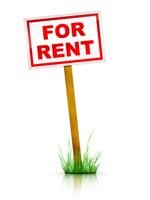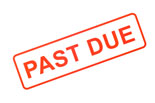DRUNK BOARD MEMBER
 QUESTION: What do you do about a board member who shows up drunk at meetings?
QUESTION: What do you do about a board member who shows up drunk at meetings?ANSWER: To avoid personal liability for their actions/decisions, directors must perform their fiduciary duties "with such care, including reasonable inquiry, as an ordinarily prudent person in a like position would use under similar circumstances." (Business Judgment Rule.) That standard is hard to meet when a board member is DUI (Director Under the Influence).
Reckless Indifference. As with drunk drivers, a drunk director is not competent to get behind the wheel. Their impaired judgment is self-induced and could be deemed reckless indifference or deliberate disregard of their obligations to the membership and an abdication of their duties as a director. Such behavior is specifically excluded from protection by Corporations Code §204(a)(10)(iv)&(v), i.e., it exposes the director to personal liability.
Fellow Directors. What impact does it have on fellow directors? The worst case scenario is the drunk director gets into a fight with and seriously injures a homeowner at a board meeting. The injured owner then sues the board for not previously taking action against the inebriated director. While the likelihood of success against all directors would depend upon foreseeability of the impaired director's actions, the lawsuit would certainly succeed against the problem director. The plaintiff would also prevail against the association since the director's actions occurred while in his official capacity.
Censure. If the board does nothing, it has the effect of condoning the director's bad behavior--something that would certainly be used against the board at the time of trial. To protect themselves and the association, fellow directors should warn the impaired director to go home and sleep it off and never again appear at a meeting intoxicated. If the bad behavior continues, the board should censure the director.
Removal from Office. If the director is an officer (president, secretary, treasurer), he can be removed from office by fellow directors. Unseating him from the board however, is not an option unless the bylaws specifically authorize it. That is something normally reserved for the membership via a recall.
Ethics Policy. If boards have not already done so, they should adopt a "Code of Conduct" or "Ethics Policy" to address these kinds of situations.
NOTE: If you adopt an ethics policy, be sure to include an exception that allows directors to get drunk after meetings where they have to deal with particularly difficult homeowners.
 QUESTION: Our board is frustrated with delinquent homeowners who collect rent on their units but refuse to pay their dues. Is there anything we can do?
QUESTION: Our board is frustrated with delinquent homeowners who collect rent on their units but refuse to pay their dues. Is there anything we can do? QUESTION: Our membership approved revised CC&Rs eliminating cumulative voting but failed to pass a bylaw amendment doing the same. What do we do now?
QUESTION: Our membership approved revised CC&Rs eliminating cumulative voting but failed to pass a bylaw amendment doing the same. What do we do now? QUESTION: We have many HOA boards who are frustrated at seeing unpaid late fees on their aged receivables report. Recently at an industry event, we were told that if an association changes its delinquency policy to say so, boards can apply owner payments to outstanding late fees before applying the payment to outstanding assessments. Is that true?
QUESTION: We have many HOA boards who are frustrated at seeing unpaid late fees on their aged receivables report. Recently at an industry event, we were told that if an association changes its delinquency policy to say so, boards can apply owner payments to outstanding late fees before applying the payment to outstanding assessments. Is that true? QUESTION: We sent out a call for candidates for our annual election and there were no volunteers. If the law says we have to hold an election each year, how do we have one without candidates?
QUESTION: We sent out a call for candidates for our annual election and there were no volunteers. If the law says we have to hold an election each year, how do we have one without candidates?